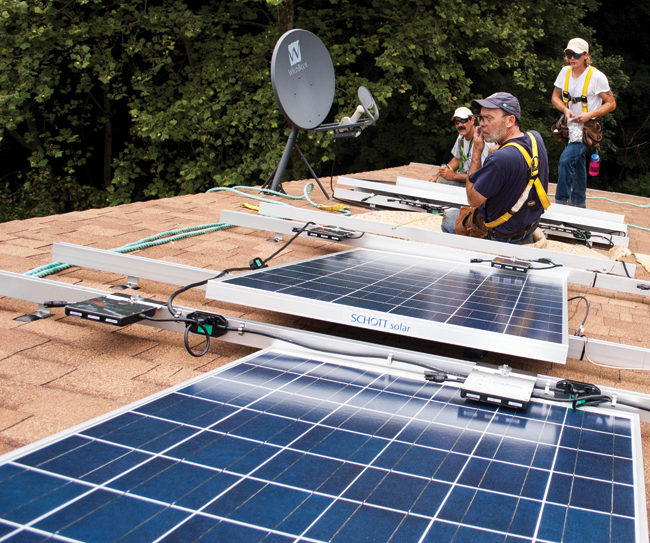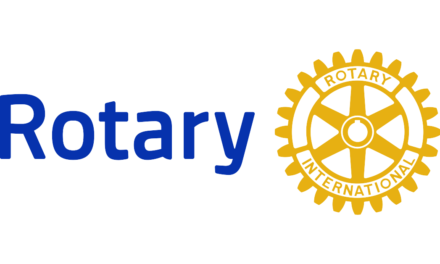
Editor’s note: The following is a press release from the City of Bloomington. Bloom has republished it here with edits for style and clarity.
As part of Mayor John Hamilton’s Recover Forward initiative, the City of Bloomington is offering a new opportunity for residents to invest in green home improvements with the 2021 Bloomington Green Home Improvement Program (BGHIP). The program will provide qualified homeowners with $1,000 rebates and low-interest loans for solar, geothermal, and energy efficiency projects, which also provide federal tax credits if completed in 2021 or 2022. BGHIP helps Bloomington homeowners finance energy efficiency upgrades, reduce their utility bills, and increase the environmental sustainability of their houses, in accordance with the City’s goals to improve environmental and economic equity in Bloomington.
The City is offering several opportunities to learn more about BGHIP:
- Together with CDFI Friendly Bloomington, the City will host a webinar on Tuesday, July 27, from 5:30-6:30 p.m. for both homeowners and contractors who may have questions about the program. Register here for the webinar (registration required). The webinar will be recorded and the video will be posted on the website.
- Contractors are invited to attend a Zoom FAQ session about the program and how to get involved on Monday, July 26, from 1–2 p.m.Register here for the FAQ session (registration required).
- Participant intake form and additional program details are available at bloomington.in.gov/sustainability/bghip.
The program is a partnership between the City of Bloomington’s Department of Economic and Sustainable Development, CDFI Friendly Bloomington and Clean Energy Credit Union (Clean Energy CU). BGHIP complements the Solar and Energy Efficient Loan (SEEL) program (launched last winter) supporting nonprofits’ and community institutions’ improvement of building efficiency. Both energy efficiency improvement programs are funded through Recover Forward, Mayor John Hamilton’s multi-year initiative to help the community rebound and thrive, by making investments that increase racial, economic, and climate justice.
“The City of Bloomington continues to foster initiatives that support environmental and economic goals, advancing Bloomington’s progress towards becoming a more sustainable, resilient, and thriving city,” says Hamilton. “Through this program, individuals can play an important role in climate action and also enjoy energy cost savings.”
All homeowners within city limits are eligible to participate in this program and are encouraged to apply. Once eligibility is confirmed through a simple intake form, the applicant will receive notice to apply directly with Clean Energy CU for a loan at an interest rate reduced by 0.5% (from currently listed rates) for any eligible green home improvement. Program participants who verify project completion and have an annual household income of no more than $100,000 are also eligible for a $1,000 rebate from the City. Additionally, a federal solar income tax credit of 26% is currently available for any solar or geothermal project completed in 2021 or 2022. Receiving a rebate from the City does not disqualify participants from taking advantage of the federal tax credit.
“This program creates the opportunity for low- and moderate-income homeowners to make environmentally-friendly updates to their homes, which will have direct benefits for them and the community—and region—as a whole,” says Brian Payne, executive director of CDFI Friendly Bloomington (CFB). A local nonprofit that helps to facilitate increased access to funding from Community Development Financing Institutions (CDFIs), CFB facilitated the City’s partnership with Clean Energy CU, a low-income designated and federally chartered credit union.
Program participants are able to utilize Clean Energy CU financing for a wide range of solar and energy efficiency projects, including solar electric system installations; geothermal heat pump systems; green home upgrades such as energy efficient HVAC, water heating, lighting, and appliances; energy analysis and monitoring; building envelope improvements; and electrical vehicle chargers. For the full list of green home improvements eligible for financing, please visit Clean Energy CU’s website at www.cleanenergycu.org.
Clean Energy CU’s mission is to accelerate the adoption of clean energy and energy-saving projects as well as to increase the efficiency of the built environment, a major contributor to greenhouse gas emissions and climate change. Increasing access to financing and providing additional incentives for utilizing clean energy and improving energy efficiency will allow more residents to reduce their cost of living by lowering their utility bills, which aligns with Bloomington’s commitment to increase utilization of renewable energy and reduce the carbon footprint of our city.
“We’re excited to partner with the City of Bloomington to encourage and facilitate more residents’ installing renewable energy and energy efficiency projects,” says Blake Jones, volunteer board chair for Clean Energy CU. “In addition to the environmental benefits, we’re excited that these projects will also help Bloomington residents to lower their utility bills and save money.”








It is a good initiative by City of Bloomington to work with solar and energy efficiency projects. Other organizations can take inspiration from Bloomington Green Home Improvement Program and include renewable energy in their projects.